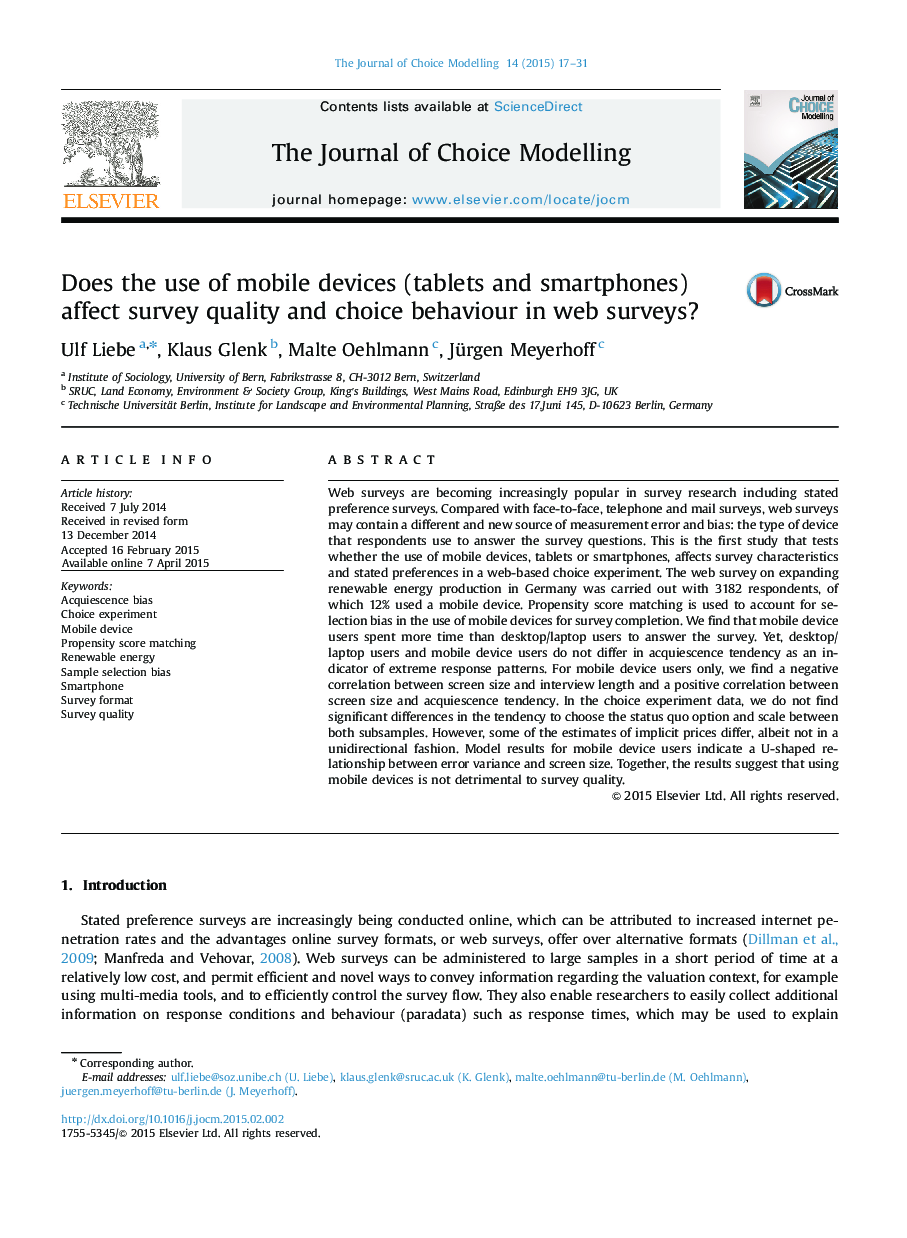| کد مقاله | کد نشریه | سال انتشار | مقاله انگلیسی | نسخه تمام متن |
|---|---|---|---|---|
| 5091842 | 1478400 | 2015 | 15 صفحه PDF | دانلود رایگان |
- Propensity score matching accounts for selection bias in sample.
- Effects of mobile device use: length (+); interruptions (+); acquiescence tendency (â).
- No differences in scale but differences in implicit prices (marginal WTP).
- Effects of screen size: length (â); acquiescence tendency (+); error variance (U-shaped).
- No indication that mobile device use is detrimental to survey quality.
Web surveys are becoming increasingly popular in survey research including stated preference surveys. Compared with face-to-face, telephone and mail surveys, web surveys may contain a different and new source of measurement error and bias: the type of device that respondents use to answer the survey questions. This is the first study that tests whether the use of mobile devices, tablets or smartphones, affects survey characteristics and stated preferences in a web-based choice experiment. The web survey on expanding renewable energy production in Germany was carried out with 3182 respondents, of which 12% used a mobile device. Propensity score matching is used to account for selection bias in the use of mobile devices for survey completion. We find that mobile device users spent more time than desktop/laptop users to answer the survey. Yet, desktop/laptop users and mobile device users do not differ in acquiescence tendency as an indicator of extreme response patterns. For mobile device users only, we find a negative correlation between screen size and interview length and a positive correlation between screen size and acquiescence tendency. In the choice experiment data, we do not find significant differences in the tendency to choose the status quo option and scale between both subsamples. However, some of the estimates of implicit prices differ, albeit not in a unidirectional fashion. Model results for mobile device users indicate a U-shaped relationship between error variance and screen size. Together, the results suggest that using mobile devices is not detrimental to survey quality.
Journal: Journal of Choice Modelling - Volume 14, March 2015, Pages 17-31
